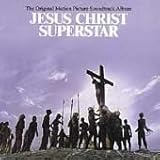Thus, this funny story about the BYU student paper (by the BYU student paper via GetReligion) seems particularly timely:
The Daily Universe took the extraordinary step Monday of re-calling all its 18,500 copies from newsstands around campus and the community to reprint the entire 14-page issue due to a typographical error on the front page.Apparently for a misspelled word, the spell checker suggested “apostate” instead of “apostle.” Close, right?
A spelling error appeared in a photo caption in which the word “apostle” was rendered as “apostate.” In referring to activities at the General Conference of The Church of Jesus Christ of Latter-day Saints last weekend, the caption read in part, “Members of the Quorum of the Twelve Apostates and other general authorities raise their hands in a sustaining vote. . . .”
Once the mistake was noticed, all available copies of the newspaper were removed from the racks and replaced with a sign directing students to view the paper online, said Brad Rawlins, chair of the Department of Communications.
“We are reprinting the paper and we will have the corrected version back on the racks by mid-afternoon,” Rawlins said. “This shows the deep concern we have on the matter. We don’t think this error is glib or cute or humorous. We understand people will take offense to the error. We ourselves are offended as a department for this error. We have a deep regret that it appeared in today’s paper.”
The Online Etymology Dictionary says
apostateSo apparently in Middle English, apostates came before Apostles. It’s good that the paper didn’t try to get away with their mistake.
1340, "one who forsakes his religion or faith," from L.L. apostata, from Gk. apostasia "defection, desertion, rebellion," from apostenai "to defect," lit. "to stand off," from apo- "away from" (see apo-) + stenai "to stand." Used in non-religious situations (politics, etc.) from 1362.
apostle
O.E. apostol "messenger," but esp. of the 12 witnesses sent forth by Jesus to preach his Gospel, from L.L. apostolus, from Gk. apostolos "messenger, person sent forth," from apostellein "send away, send forth," from apo- "away" (see apo-) + stellein "to send" (cf. epistle). The current form of the word, predominant since 16c., is infl. by O.Fr. apostle (12c.), from the same L.L. source. Fig. sense of "chief advocate of a new principle or system" is from 1810. Apostles, short for "The Acts and Epistles of the Apostles," is attested from c.1400.

Kinda reminds me of from Andrew Lloyd Weber’s days writing Christian-inspired rock opera, specifically the song called (appropriately) “The Last Supper”:
Look at all my trials and tribulationsSomehow, it wouldn’t roll off the tongue quite as well if they sang “apostate.”
Sinking in a gentle pool of wine
Don't disturb me now I can see the answers
Till this evening is this morning life is fine
Always hoped that I'd be an apostle
Knew that I would make it if I tried
Then when we retire we can write the gospels
So they'll still talk about us when we've died
Note: Yes I know what day it is. No more humor until after Sunday.